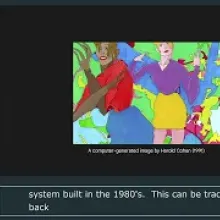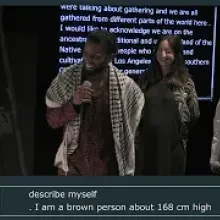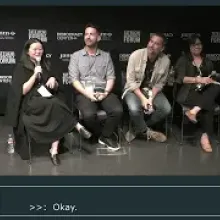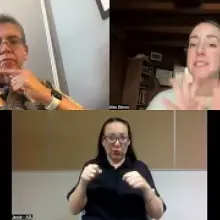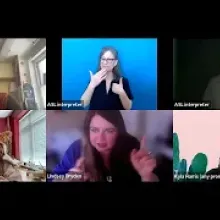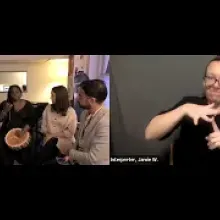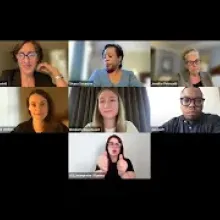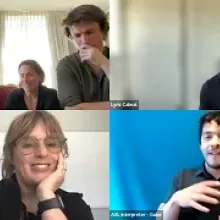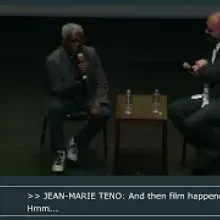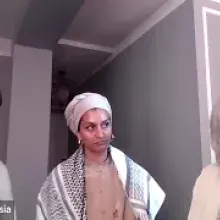Led by Eva Kozanecka, filmmaker and head of Google’s Artists + Machine Intelligence program, and Will Tyner, Firelight Media Doc Lab Fellow and researcher at Google, this session will share insights, strategies and a starting framework to empower filmmakers to critically engage with media generation tools in ways that align with their values and shape future applications of AI technologies in film.
Getting Real
When we gather together to consider the big issues facing our field, we usually try to think our way out of certain problems. We try to treat the symptom, such as addressing exclusion by focusing on access, but what might we be overlooking with this type of understanding?
For this session, we turn the tables. These intrepid gatekeepers have pledged to give honest answers to your questions, especially the most challenging ones.
Working with brands might not be for every filmmaker, but for those looking for additional sources of income or who have a project whose topic and goals naturally align with the interests of a company, it can be a synergistic opportunity.
Access in the documentary field is often framed in technical terms, instead of in creative, conceptual, and spiritual ways. In this virtual discussion on the spirit of independence, filmmakers Ella Glendining, Lindsey Dryden, and other filmmakers will elaborate on what voice, audience, and success mean to them as disabled filmmakers, and how reframing "access" beyond accessibility can create and sustain space for radical new voices in the documentary industry.
Filmmakers perpetually face challenges from fundraising to pairing up with solid partners, managing post-production details and legal requirements, and launching and promoting their final work, not to mention simple job security in a world of contract work.
Generative artificial intelligence (GAI) is flooding our world with a dizzying amount of generated material and is beginning to change every aspect of producing films. The documentary industry does not yet have guidelines in place for how filmmakers can ethically incorporate these new tools.
Access is one of the cornerstones of documentary production that allows a filmmaker to tell urgent stories. Access may imply risk for the filmmakers or for the protagonists, or it might mean complicity with power to be able to make one’s film.
Jean-Marie Teno is Africa’s preeminent documentary filmmaker. For almost four decades, he has been producing and directing films about the inheritance of a colonial system in Cameroon and the wider African continent.
There has been an alarming increase in threats to filmmaker freedom of speech in the past year, from the loss of funding and distribution of work to the loss of residencies and teaching positions and the reality of being publicly targeted for actions as small as signing petitions and liking social media posts.





